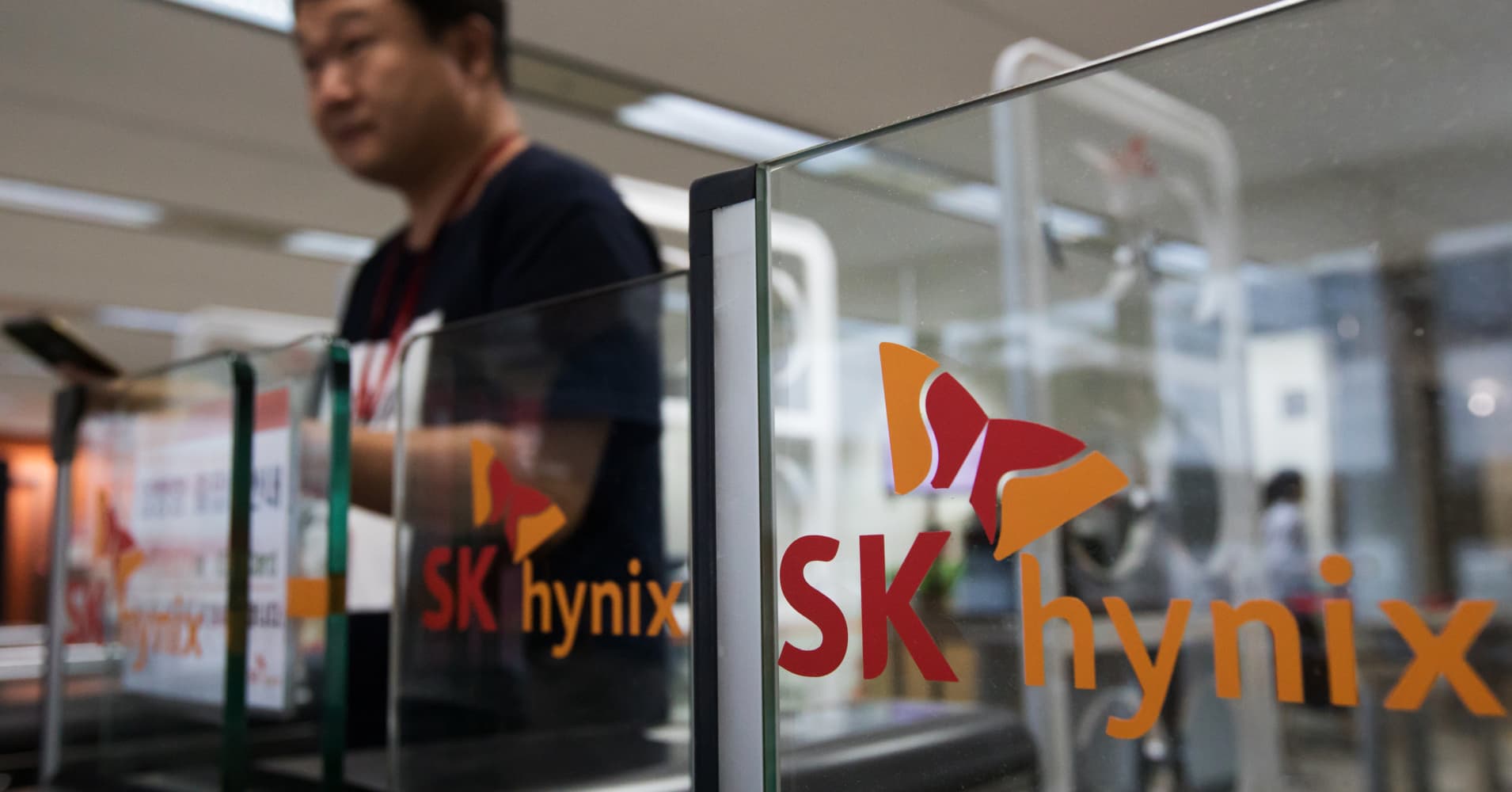
Semiconductor stocks in South Korea soared during Thursday's trading session following the earnings release of of U.S. chipmaker Micron Technology overnight, which bested expectations.
Industry heavyweight Samsung Electronics and chipmaker SK Hynix both saw their stock surge 4.20 percent and 6.95 percent, respectively in afternoon trade Thursday.
Beating on the top and bottom line, Micron reported earnings per share of $1.71 on revenue of $5.84 billion. Wall Street had estimated earnings per share of $1.67 on revenue of $5.82 billion, according to Refinitiv.
Micron's revenue compares to the $7.35 billion they earned in the same period last year.
Its President and CEO Sanjay Mehrotra cited a "challenging market environment" for the revenue decline.
Even though the U.S. chipmaker gave a forecast for its fiscal third quarter that was below Wall Street's expectations, the company predicted that demand will likely begin growing again by the fourth quarter.
Following that earnings release, Micron shares jumped 4.78 percent in after-hours trading on Wednesday stateside.
"I think this after-market performance that you're seeing from Micron will confound people, and has confounded people that with negative prints, a lot of these stocks have continued to go up," Manish Nigam, Asia-Pacific head of technology research at Credit Suisse, told CNBC's "Squawk Box" on Thursday.
"Tech was one of the worst performing sectors last year. Year-to-date, it is one of the best performing sectors," said Nigam, attributing some of the recent tech gains to a "rebound" from last year's losses.
Growing trade tensions between the U.S. and China, coupled with nagging concerns about the Chinese economy have rattled confidence in some of the industry's key players. Soft iPhone sales, along with a deceleration in cryptocurrency mining ventures, further fed investor anxiety surrounding weakened demand.
Looking ahead, Credit Suisse's Nigam said investors should focus on supply side issues within the sector, with Micron, SK Hynix and Samsung all signalling a reduction in capital expenditure.
"Based on the current (capital expenditure) guidance from all three main memory makers, you are looking at a underlying supply growth which will not be more than 15 percent," Nigam said. "Demand growth, even in a reasonably bearish scenario, will probably be well ahead of that."
As a result, he said, the discussion in the sector could be moving from "current inventory concerns and sharp (average selling price) concerns to concerns around likely shortages ... before the year is out."
— Reuters, along with CNBC's Maggie Fitzgerald and J.R. Reed, contributed to this report.
via IFTTT
No comments:
Post a Comment